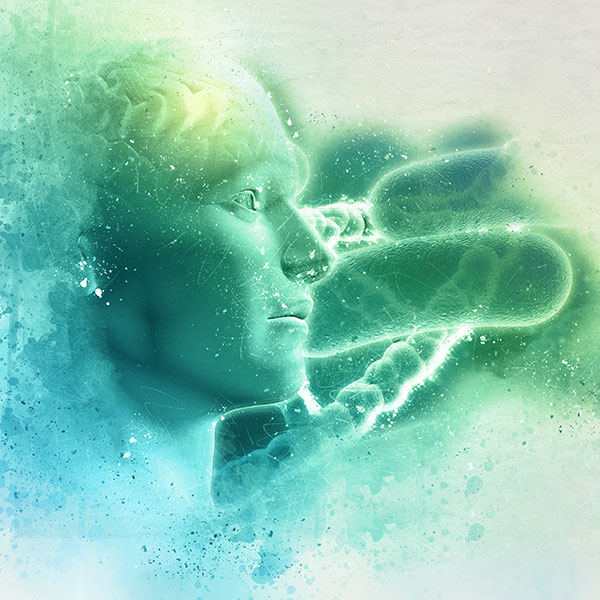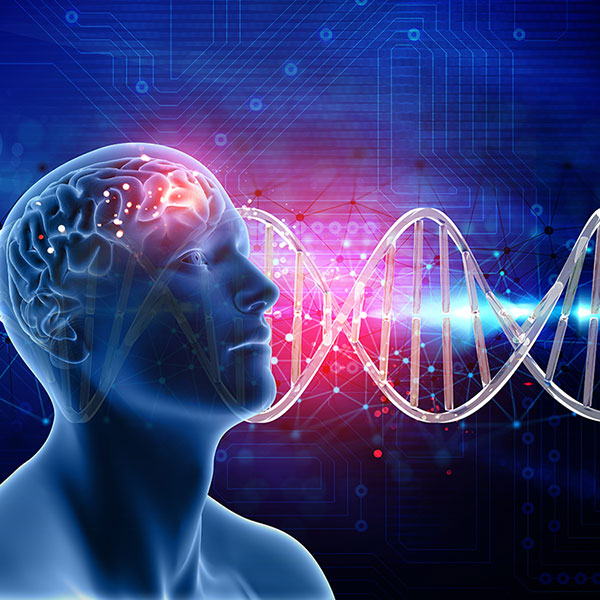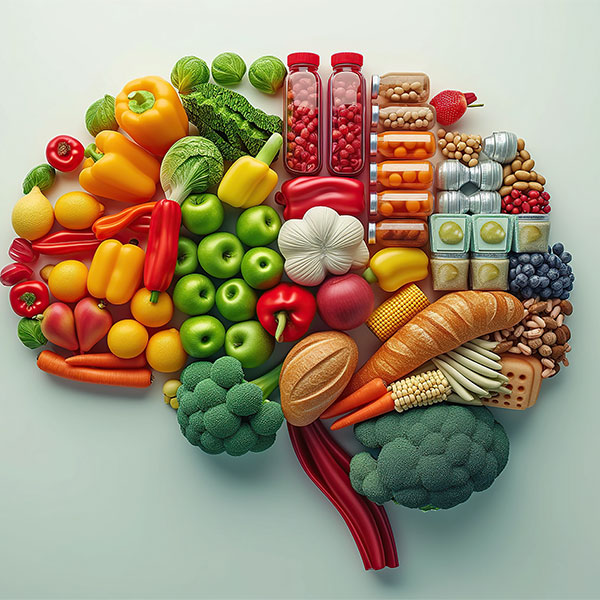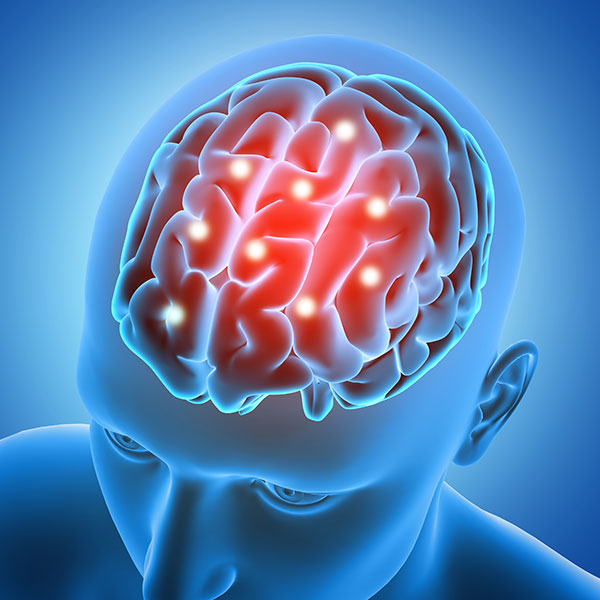
What Does Energy Have to Do with Mental Health?
Introduction
Have you ever felt like your energy levels directly influence your mood, focus, and overall mental state?
The connection between energy and mental health is profound, yet often overlooked.
Energy doesn’t just come from physical vitality—it also encompasses emotional, mental, and even spiritual dimensions.
When our energy is balanced, we feel motivated, resilient, and able to tackle challenges.
However, when energy is low or misaligned, it can lead to fatigue, stress, and even mental health struggles like anxiety or depression.
In this blog post, we’ll explore the fascinating relationship between energy and mental health, uncovering how they impact each other and how you can harness your energy to support a healthier mind.

Understanding Energy and Its Forms
Energy, in the context of mental health, encompasses various dimensions that contribute to how we feel, think, and function daily. It’s not just about physical vitality; it also includes emotional, mental, and spiritual components that influence our overall well-being. Here’s a deeper look at each form of energy and its impact:
Physical Energy
Physical energy comes from the body’s ability to sustain and perform activities. It is directly influenced by:
- Nutrition: A balanced diet provides the fuel your body needs to function optimally. Deficiencies in key nutrients like iron or B vitamins can lead to fatigue and sluggishness.
- Sleep: Quality rest is essential for recharging the body and mind. Sleep deprivation not only drains energy but also impairs mood, focus, and decision-making.
- Physical Activity: Regular exercise boosts energy by improving circulation, enhancing oxygen flow, and releasing endorphins that elevate mood.
Emotional Energy
Emotional energy refers to how our feelings and emotional states affect our vitality:
- Positive Emotions: Joy, love, and excitement can boost energy and create a sense of enthusiasm.
- Negative Emotions: Stress, anxiety, and sadness drain emotional energy, often leaving us feeling exhausted or overwhelmed.
Managing emotions effectively through self-awareness and stress-relief techniques is key to maintaining emotional energy.
Mental Energy
Mental energy relates to cognitive stamina, focus, and clarity:
- It involves your ability to concentrate, make decisions, and solve problems effectively.
- Overthinking, multitasking, or prolonged periods of stress can deplete mental energy.
- Activities that promote mental rest, such as mindfulness or breaks during work, help replenish cognitive resources.
Spiritual Energy
Spiritual energy stems from a sense of purpose, connection, and alignment with your values:
- Mindfulness practices like meditation or yoga can nurture spiritual energy.
- Feeling connected to something greater than yourself—whether through religion, community, or personal values—can provide a source of renewal and strength.
- A lack of spiritual fulfillment can sometimes lead to feelings of emptiness or disconnection.
Understanding these forms of energy helps us recognize the factors that influence our mental health and well-being. By addressing each area, we can build a more holistic approach to maintaining balance and vitality in our lives.

What Does Energy Have to Do with Mental Health? Understanding the Science of Energy in Mental Health
Energy and mental health are deeply interconnected, with biology playing a key role in how we feel and function. The brain and body work together to regulate energy levels, mood, and overall well-being through complex systems involving neurotransmitters, hormones, and the body-mind connection. Here’s how these elements influence energy and mental health:
Neurotransmitters and Brain Chemistry
- Dopamine: Known as the “reward chemical,” dopamine plays a significant role in motivation, focus, and energy. When dopamine levels are low, individuals may feel unmotivated, fatigued, or depressed.
- Serotonin: This neurotransmitter helps regulate mood, sleep, and energy levels. Insufficient serotonin is often linked to depression and a lack of vitality.
- Norepinephrine: This chemical enhances alertness and energy. Low levels can contribute to fatigue and a lack of mental clarity, while high levels may increase feelings of anxiety or restlessness.
Imbalances in these neurotransmitters can result in conditions like depression or anxiety, directly impacting how energized or drained a person feels.
The Body-Mind Connection
- Fatigue or Illness: Chronic conditions like fibromyalgia or autoimmune diseases can sap physical energy, leading to mental exhaustion, irritability, and a reduced capacity to cope with stress.
- Nutrition and Physical Health: Deficiencies in essential nutrients or chronic dehydration can lead to both physical and mental fatigue, reducing focus and resilience.
The interaction between the body and mind means that taking care of physical health can often improve mental well-being.
The Role of Hormones
- Cortisol: Known as the “stress hormone,” cortisol levels fluctuate throughout the day, influencing energy and alertness.
- During acute stress, cortisol levels spike to provide a short-term energy boost. However, chronic stress can result in consistently high cortisol levels, which may lead to exhaustion, anxiety, and difficulty sleeping.
- Over time, prolonged stress can lead to “adrenal fatigue,” where the body struggles to regulate energy, leaving individuals feeling constantly drained.
- Other Hormones: Hormonal imbalances, such as thyroid dysfunction, can also affect energy and mood, contributing to symptoms like fatigue, depression, or heightened anxiety.
Understanding the biological mechanisms behind energy and mental health provides valuable insights into why we feel the way we do. By addressing these systems—through nutrition, exercise, stress management, or medical intervention—it’s possible to enhance both energy levels and overall mental well-being.

What Does Energy Have to Do with Mental Health? Factors That Affect Energy and Mental Health
Energy and mental health are influenced by a combination of lifestyle choices, environmental factors, and physiological processes. Understanding the key factors that impact energy and mental well-being can help us make positive changes to enhance both. Here are the primary factors to consider:
Sleep
- Importance of Restorative Sleep: Sleep is essential for recharging both the body and mind. It supports energy regulation, emotional stability, and cognitive function.
- Consequences of Sleep Deprivation:
- Inadequate sleep can lead to irritability, difficulty concentrating, and increased risk of mental health conditions like anxiety and depression.
- Chronic sleep deprivation disrupts the production of neurotransmitters and stress hormones, further impacting mental health.
Nutrition
- Connection Between Diet and Mental Clarity:
- A balanced diet provides the nutrients needed for optimal brain function and energy levels.
- Deficiencies in vitamins like B12, magnesium, or iron can cause fatigue and cognitive difficulties.
- Foods That Support Mental Health:
- Omega-3 fatty acids: Found in fatty fish, flaxseeds, and walnuts, they support brain health and mood.
- Complex carbohydrates: Provide a steady source of energy and regulate serotonin levels.
- Antioxidant-rich foods: Help combat oxidative stress, which can affect mental clarity and mood.
Exercise
- Boosting Energy and Mood Through Physical Activity:
- Exercise increases blood flow, delivering oxygen and nutrients to tissues, enhancing energy.
- It triggers the release of endorphins, which act as natural mood elevators and stress relievers.
- Regular physical activity improves sleep quality, further supporting mental and physical energy.
Stress and Burnout
- Impact of Prolonged Stress:
- Chronic stress activates the body’s fight-or-flight response, leading to energy depletion over time.
- High levels of cortisol, the stress hormone, can interfere with sleep, reduce immune function, and impair mental focus.
- Burnout:
- Emotional exhaustion from prolonged stress can lead to feelings of helplessness, detachment, and a lack of motivation.
- Recognizing and addressing burnout is critical to restoring energy and mental balance.
Environmental Factors
- Influence of Surroundings on Mental Energy:
- Sunlight: Exposure to natural light helps regulate the body’s circadian rhythm, improving sleep and energy levels. A lack of sunlight, as in seasonal affective disorder (SAD), can lead to fatigue and depression.
- Noise: Persistent noise pollution can increase stress levels and interfere with concentration and sleep.
- Physical Environment: Cluttered or chaotic spaces can contribute to mental fatigue, while organized, calming spaces promote relaxation and focus.
Understanding and addressing these factors can significantly enhance energy levels and mental health. By making conscious choices in areas like sleep, diet, and stress management, individuals can create a foundation for sustained physical and emotional well-being.

How Low Energy Manifests in Mental Health Issues
Low energy levels are both a symptom and a contributing factor in various mental health issues. The interplay between energy and mental health creates a cycle where reduced vitality exacerbates mental struggles, and these struggles, in turn, drain energy further. Below are some common mental health issues where low energy plays a significant role:
Depression
- Symptoms: Depression is often associated with persistent fatigue, lack of motivation, and difficulty concentrating. These symptoms can make it challenging to complete even basic daily tasks.
- The Energy-Mood Cycle:
- Depression can sap both physical and mental energy, leading to a sense of hopelessness and inertia.
- Low energy may also prevent individuals from engaging in activities that could lift their mood, such as exercise or social interaction, perpetuating the cycle.
- How Depression Affects Energy Levels:
- Biological factors, such as disruptions in sleep patterns and hormonal imbalances, can worsen fatigue.
- Over time, the reduced engagement in energy-boosting activities exacerbates the lethargy associated with depression.
Anxiety
- Energy Draining Effects:
- Anxiety often leads to hypervigilance and overthinking, which can drain both mental and physical energy.
- The constant “fight or flight” response activated by anxiety places the body under chronic stress, depleting energy reserves.
- Impact on Physical Energy:
- Physical symptoms like muscle tension, headaches, and disrupted sleep are common, leaving individuals feeling exhausted.
- Anxiety can also impair focus, making it harder to complete tasks, which further contributes to mental fatigue.
- The Anxiety-Energy Feedback Loop:
- As anxiety consumes energy, individuals may feel too tired to engage in self-care or relaxation techniques, perpetuating their anxious state.
Chronic Fatigue Syndrome (CFS)
- What It Is: Chronic Fatigue Syndrome, also known as Myalgic Encephalomyelitis (ME/CFS), is a condition characterized by extreme, long-lasting fatigue that is not relieved by rest.
- Overlap with Mental Health:
- Many individuals with CFS experience co-occurring mental health challenges, including depression and anxiety.
- The constant battle with fatigue can lead to feelings of frustration, helplessness, and isolation, which exacerbate mental health struggles.
- Energy and Mental Health Link:
- The physical limitations caused by CFS often prevent individuals from engaging in activities that promote mental health, such as exercise or socializing.
- CFS can also impair cognitive functions, such as memory and concentration, which further impacts emotional well-being.
Understanding how low energy manifests in mental health issues is crucial for identifying and addressing the root causes. By recognizing the connection between energy levels and mental health, individuals can seek appropriate interventions to break the cycle and restore balance.

What Does Energy Have to Do with Mental Health? Strategies to Improve Energy and Mental Health
Enhancing energy levels and mental health requires intentional efforts to develop sustainable habits and seek appropriate support. By implementing targeted strategies, individuals can restore balance, reduce stress, and foster overall well-being. Below are practical approaches to improve both energy and mental health:
Building Healthy Routines
- Consistency:
- Regular routines for sleep, diet, and exercise are foundational for maintaining energy and emotional stability.
- Aim for 7-9 hours of quality sleep each night to allow the body and mind to recharge.
- Balanced Lifestyle:
- Incorporate nutrient-rich foods into your diet to fuel both physical and mental energy. Include whole grains, lean proteins, and healthy fats.
- Regular exercise boosts energy by improving circulation and releasing endorphins, which enhance mood and reduce stress.
Mindfulness and Relaxation Techniques
- Meditation:
- Practicing meditation helps calm the mind, reduce stress, and improve focus, leading to greater mental clarity and energy.
- Deep Breathing:
- Simple breathing exercises can reduce anxiety and increase oxygen flow, which supports both mental and physical vitality.
- Yoga:
- Combining movement with mindfulness, yoga is a powerful way to restore energy, improve flexibility, and reduce mental fatigue.
Prioritizing Self-Care
- Set Boundaries:
- Protect your time and energy by learning to say no to unnecessary commitments. Prioritize activities that rejuvenate you.
- Emotional Wellness:
- Engage in hobbies or activities that bring joy and help you relax. Spending time outdoors or with loved ones can be particularly restorative.
- Digital Detox:
- Limit screen time, especially before bed, to improve sleep and reduce mental overstimulation.
Seeking Professional Help
- Therapy and Counseling:
- Talking to a mental health professional can help address underlying issues such as anxiety, depression, or unresolved stress.
- Therapists can also provide coping strategies to manage energy and improve overall mental health.
- Medical Intervention:
- If physical health issues like hormonal imbalances or chronic conditions are impacting energy, consult a doctor for evaluation and treatment.
- Consider working with a nutritionist or fitness expert for personalized advice on building a healthier lifestyle.
By incorporating these strategies, individuals can take proactive steps to improve their energy levels and mental health. Small, consistent changes can lead to significant improvements, fostering a more balanced and fulfilling life.

The Role of Energy Work in Mental Health
Energy work encompasses a variety of alternative and holistic practices that focus on the flow and balance of energy within the body. These practices are often used to support mental health by promoting relaxation, reducing stress, and fostering emotional clarity. While energy work is not a substitute for traditional mental health treatments, it can serve as a complementary approach. Here’s an overview of its role in mental health:
Alternative and Holistic Approaches
- Reiki:
- A Japanese healing technique that uses gentle touch or hand placement to promote energy flow and relaxation.
- Practitioners believe it helps release emotional blockages and reduce stress, fostering a sense of peace.
- Acupuncture:
- A traditional Chinese medicine practice that involves inserting thin needles into specific points on the body to balance energy flow (qi).
- Studies suggest acupuncture can help alleviate anxiety, depression, and insomnia by stimulating the nervous system and releasing endorphins.
- Chakra Balancing:
- Based on the concept of energy centers in the body, this practice aims to align and balance these centers to promote emotional and physical well-being.
- Techniques may include meditation, visualization, and the use of crystals or sound therapy.
Mind-Body Interventions
- Tai Chi:
- A form of moving meditation that combines slow, deliberate movements with focused breathing and mindfulness.
- Known to reduce stress, improve mood, and enhance overall energy and mental clarity.
- Qigong:
- An ancient Chinese practice involving coordinated movement, breath control, and meditation to cultivate energy (qi) and improve health.
- Regular practice has been linked to reduced anxiety, improved focus, and enhanced emotional balance.
Criticism and Evidence
- Scientific Evidence:
- While some studies support the effectiveness of energy-based therapies in reducing stress and anxiety, more research is needed to understand their mechanisms and benefits fully.
- Practices like acupuncture and tai chi have shown promise in clinical trials, particularly for stress and anxiety relief.
- Skepticism:
- Critics argue that certain energy practices, such as Reiki or chakra balancing, lack robust scientific backing and rely heavily on placebo effects.
- Despite skepticism, many individuals report positive mental health outcomes, suggesting these practices may offer subjective benefits even without a clear scientific explanation.
Energy work can play a meaningful role in mental health by providing individuals with tools to relax, manage stress, and cultivate emotional resilience. While not a replacement for evidence-based treatments, these practices may complement traditional therapies and contribute to a more holistic approach to mental well-being.

The Bigger Picture: Energy and Mental Resilience
Energy is a foundational element of mental resilience, enabling individuals to navigate challenges, adapt to stress, and maintain emotional stability. When energy levels are managed effectively, they contribute to long-term mental health and a greater capacity to handle life’s demands. Understanding the relationship between energy and resilience highlights the importance of a holistic approach to mental well-being.
How Managing Energy Supports Mental Resilience
- Enhances Emotional Stability:
- Balanced energy levels help regulate emotions, making it easier to respond calmly to stressful situations.
- When individuals have sufficient energy, they are less likely to feel overwhelmed, which supports emotional resilience.
- Boosts Cognitive Function:
- Adequate energy fuels the brain, improving focus, problem-solving abilities, and decision-making.
- A well-energized mind is better equipped to process information and recover from setbacks.
- Strengthens Coping Mechanisms:
- Physical, mental, and emotional energy provide the resources needed to manage stress effectively.
- Individuals with higher energy reserves are more likely to engage in proactive coping strategies, such as seeking support or taking positive action.
- Supports Consistency in Self-Care:
- Managing energy promotes healthy routines, such as regular exercise, nutritious eating, and quality sleep.
- These habits, in turn, reinforce resilience by building a solid foundation of physical and mental health.
Encouraging a Holistic Approach
- Addressing All Aspects of Energy:
- Physical: Prioritize rest, nutrition, and exercise to maintain vitality.
- Emotional: Foster emotional awareness and use stress-relief techniques like mindfulness or journaling.
- Mental: Incorporate breaks, mental rest, and activities that stimulate focus and creativity.
- Spiritual: Seek meaning, purpose, or connection through practices like meditation, volunteering, or community engagement.
- Viewing Energy as a Cycle:
- Recognize that energy is not infinite but renewable when managed wisely.
- Implement strategies to replenish energy regularly, such as taking short breaks during work, spending time in nature, or practicing relaxation techniques.
- Focusing on Preventative Care:
- By addressing energy levels proactively, individuals can prevent burnout and reduce the risk of mental health challenges.
- Preventative care includes maintaining work-life balance, setting boundaries, and engaging in regular self-reflection.
- Promoting Community and Support:
- Energy and resilience are also nurtured through relationships and community support.
- Building connections with others fosters a sense of belonging and provides emotional energy to face challenges.
The Long-Term Benefits
- Individuals who actively manage their energy levels experience improved mental health, greater adaptability, and a stronger sense of control over their lives.
- Resilience becomes a natural byproduct of consistent efforts to balance physical, emotional, and mental energy.
- By adopting a holistic approach, individuals can maintain their mental health and thrive, even in the face of adversity.
Addressing energy levels as part of a broader mental health strategy allows for a more sustainable approach to well-being. When energy is nurtured and balanced, it serves as the foundation for resilience, enabling individuals to handle stress, recover from setbacks, and live more fulfilling lives.

What Does Energy Have to Do with Mental Health? The Connection Between Energy and Mental Health
Energy is deeply intertwined with mental health, influencing our mood, focus, and resilience.
Physical energy fuels our body, emotional energy regulates our responses, mental energy drives cognitive clarity, and spiritual energy nurtures our sense of purpose.
When energy levels are balanced, we are better equipped to handle stress, overcome challenges, and thrive. Conversely, depleted energy can exacerbate mental health challenges like anxiety, depression, and burnout, creating a cycle that can be difficult to break without intentional effort.
Take Action: Evaluate and Improve Your Energy Levels
Take a moment to reflect on your energy levels in all aspects of your life—physical, emotional, mental, and spiritual.
Are you feeling drained, stressed, or unmotivated? If so, consider implementing positive changes to restore balance:
- Build healthier routines that prioritize sleep, nutrition, and exercise.
- Practice mindfulness and relaxation techniques to reduce stress and promote emotional well-being.
- Set boundaries and engage in self-care to protect your mental energy.
- Explore practices like yoga, meditation, or energy work to enhance spiritual alignment and resilience.
Seek Support When Needed
If energy-related challenges persist and significantly impact your mental health, don’t hesitate to seek professional help.
Therapists, counselors, and medical professionals can provide tailored strategies and treatments to address underlying issues.
Remember, prioritizing your well-being is the first step toward a more energized, balanced, and fulfilling life.
You don’t have to navigate this journey alone—help is available. Take that step today.

